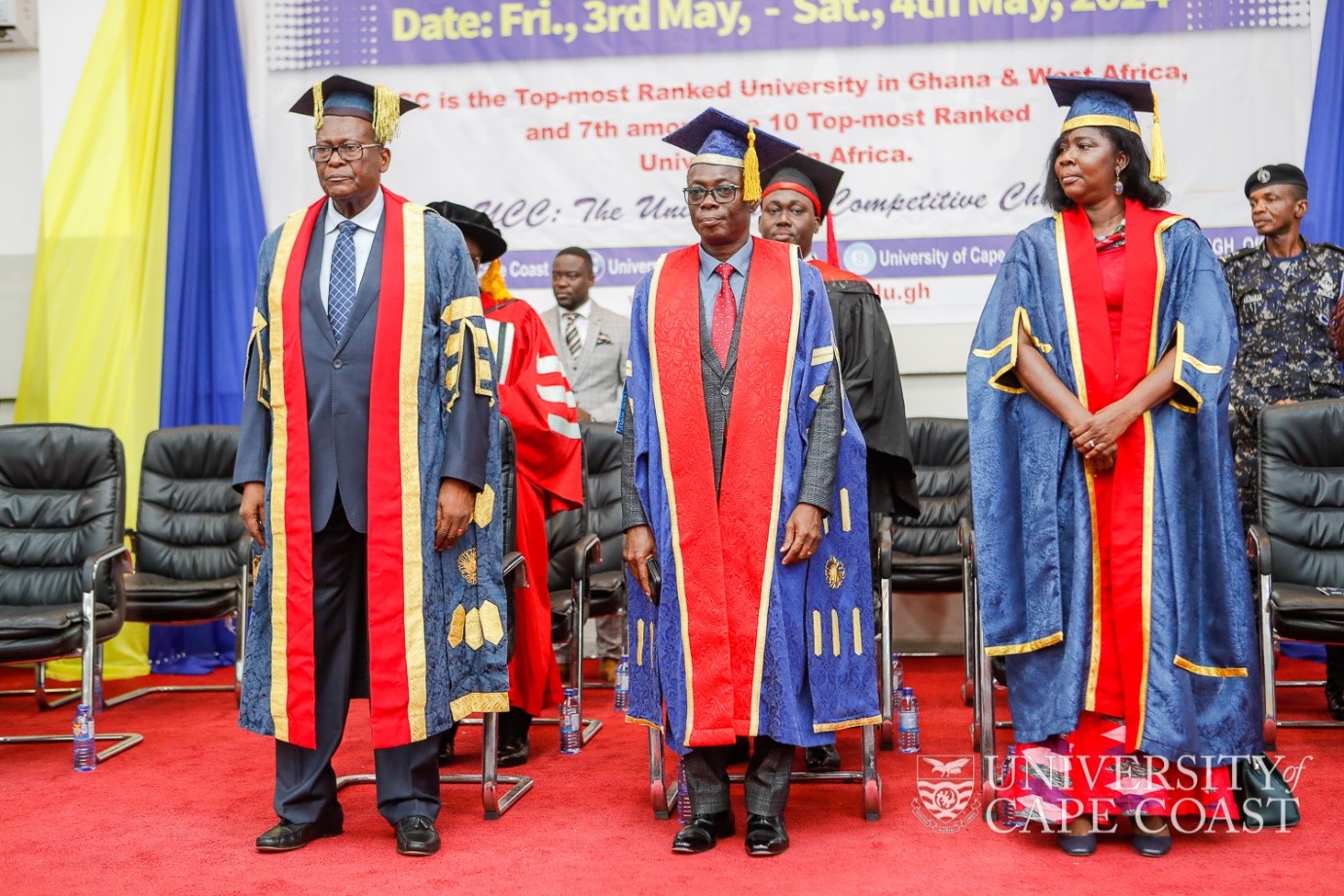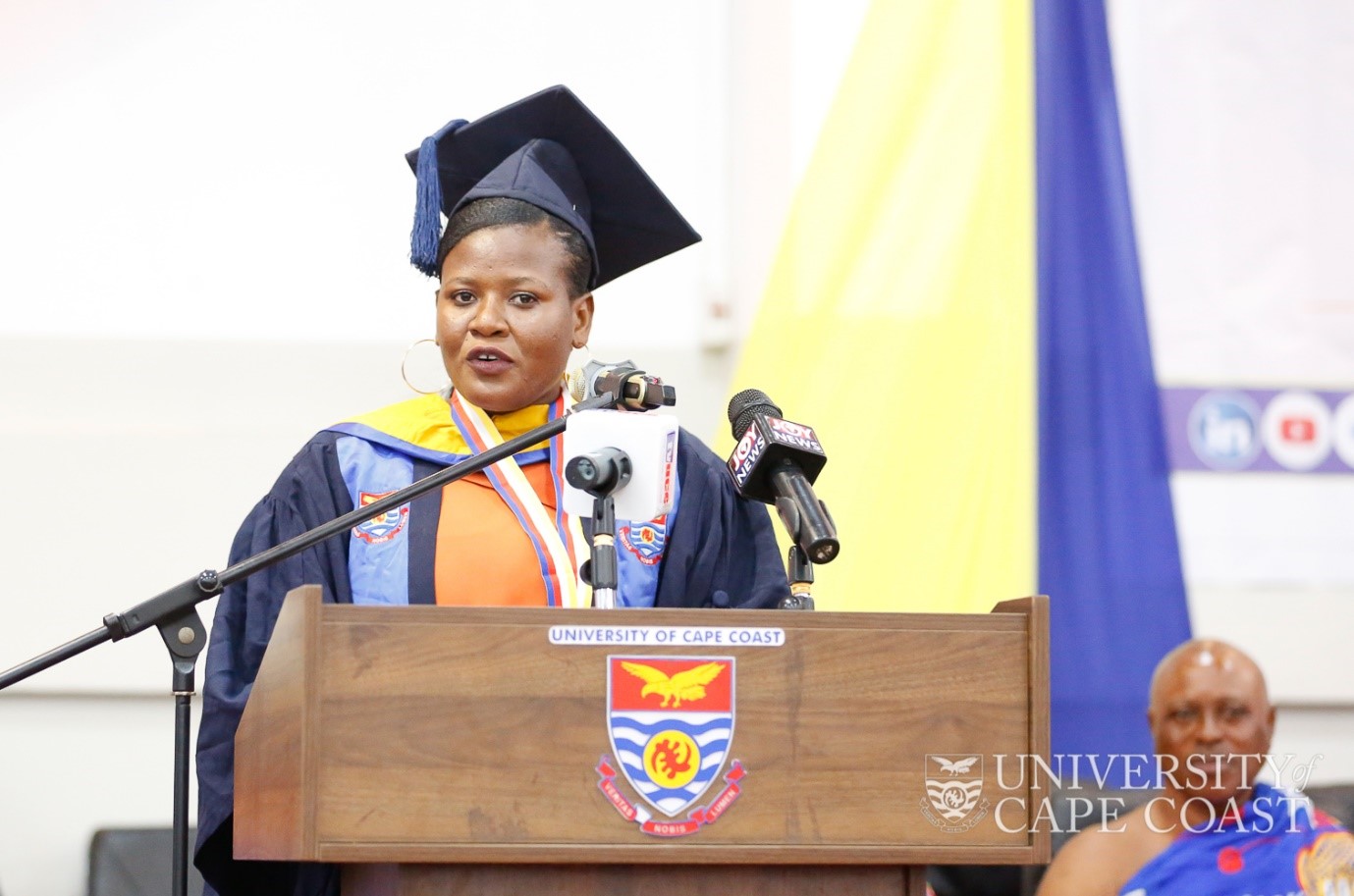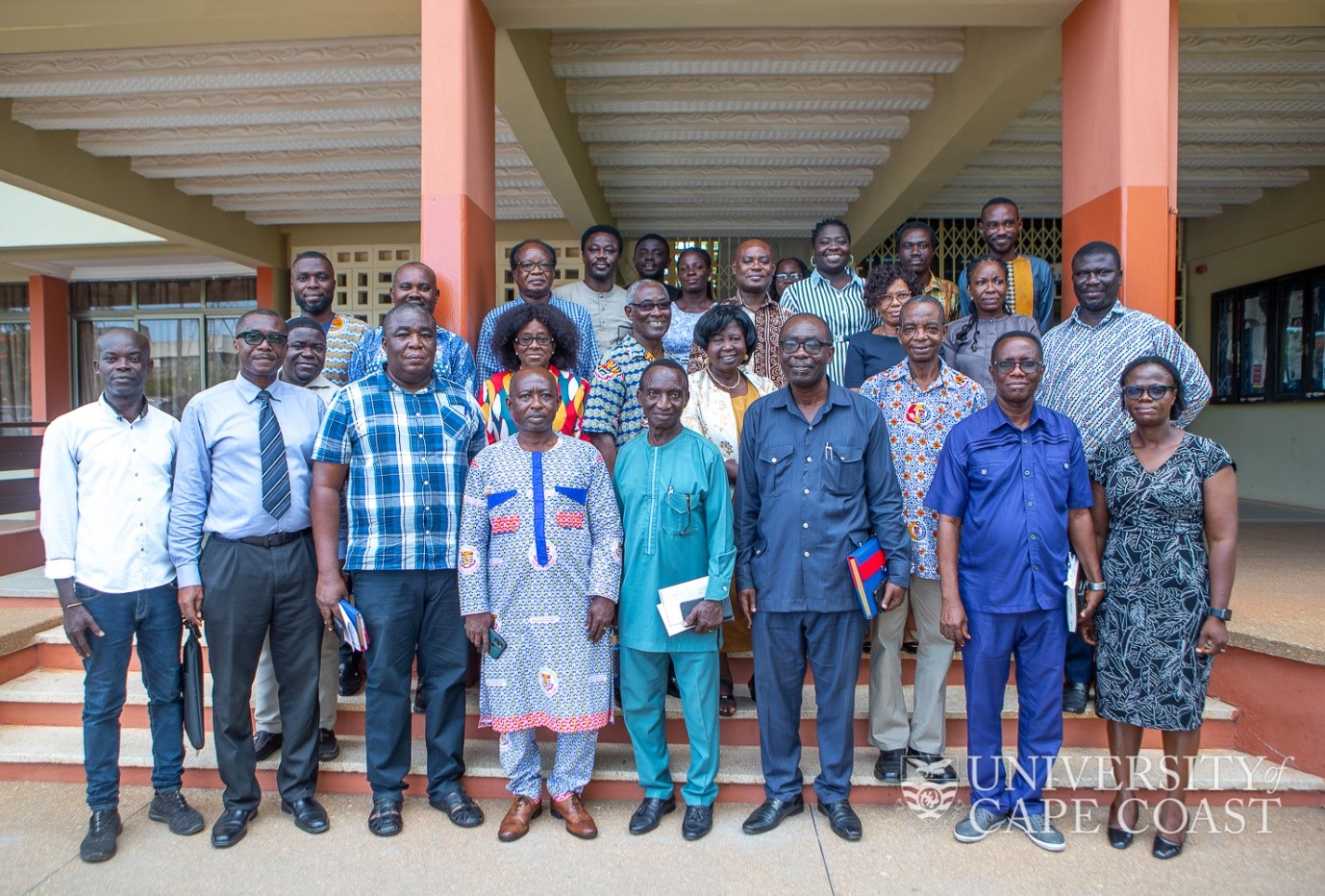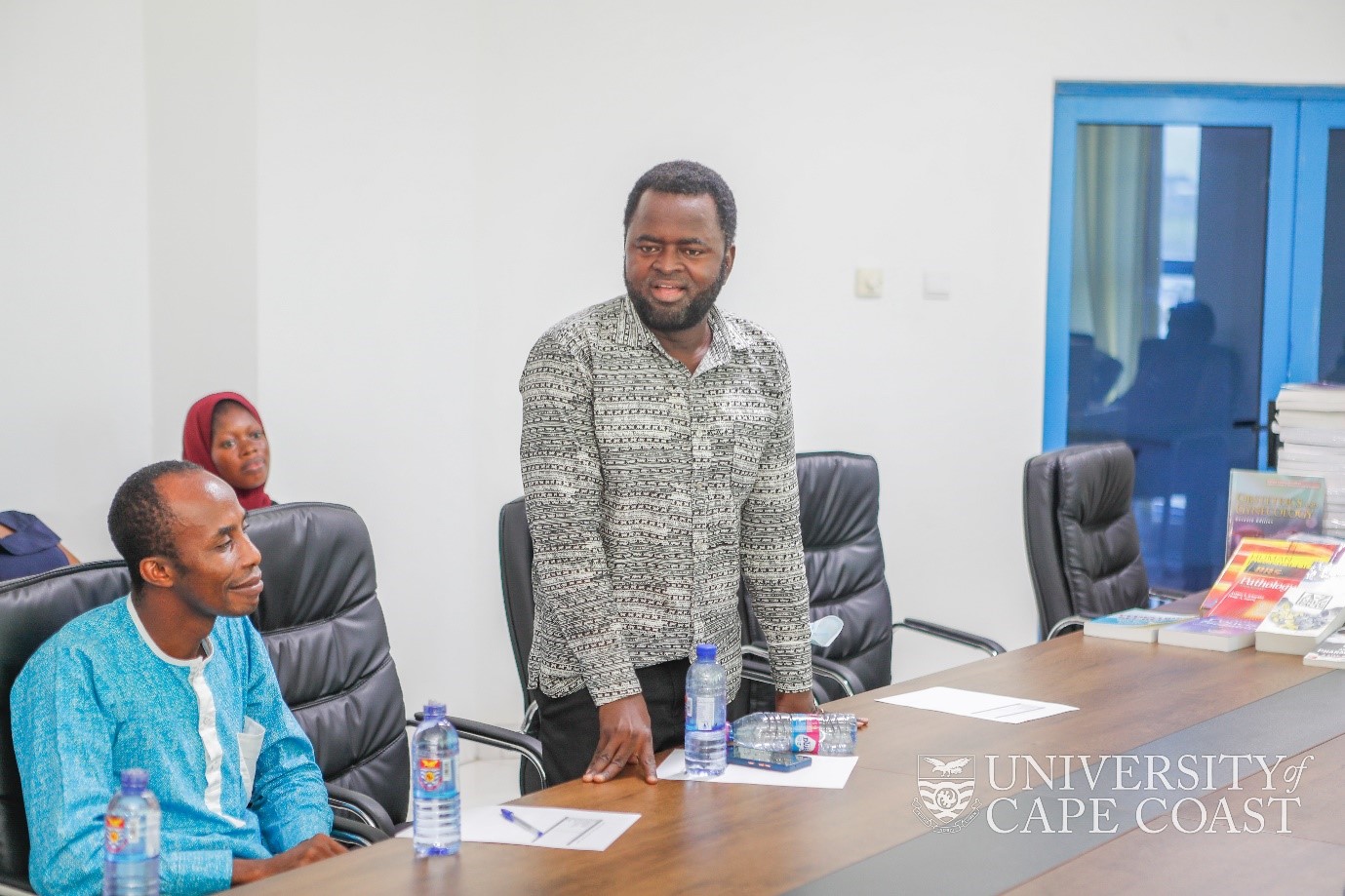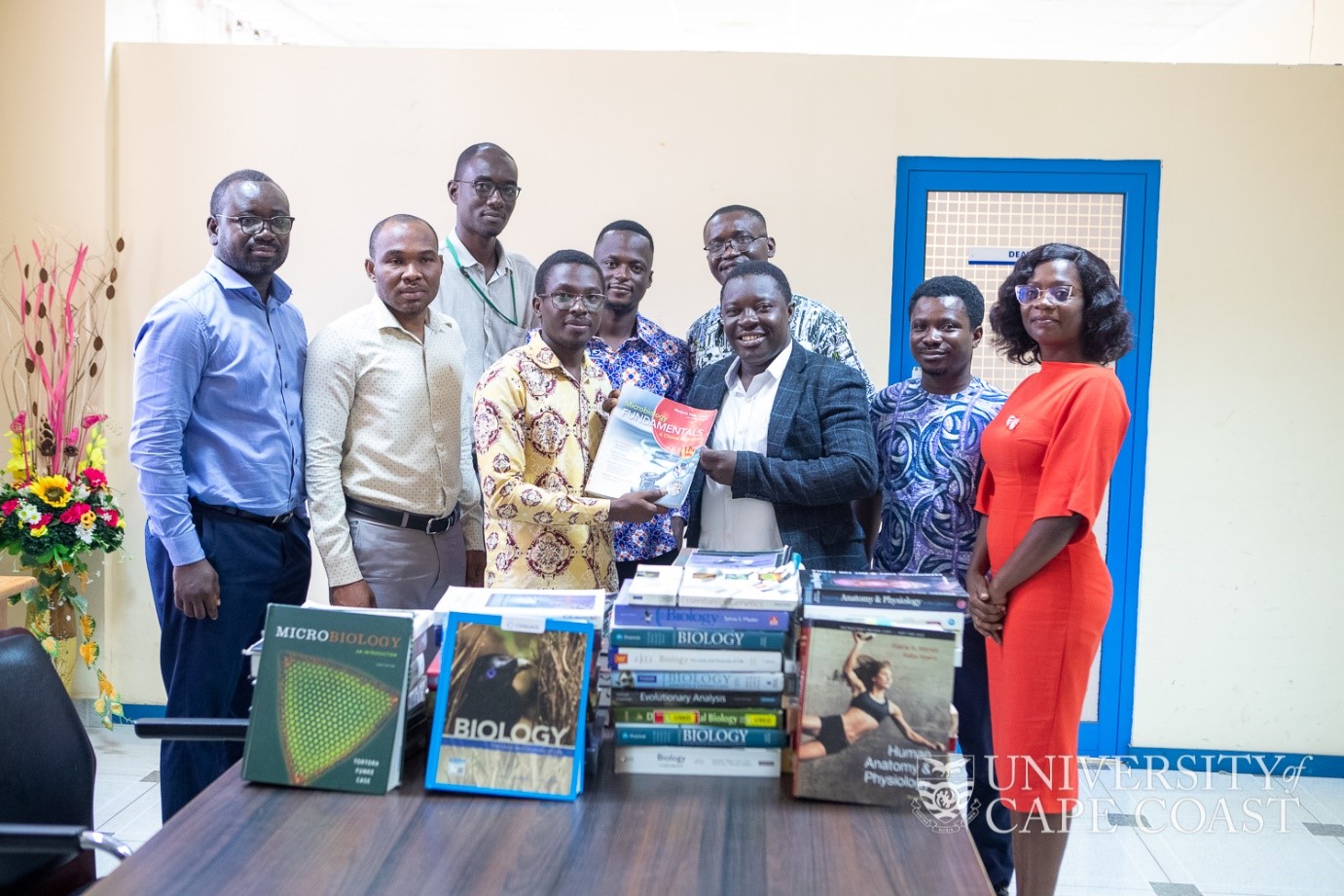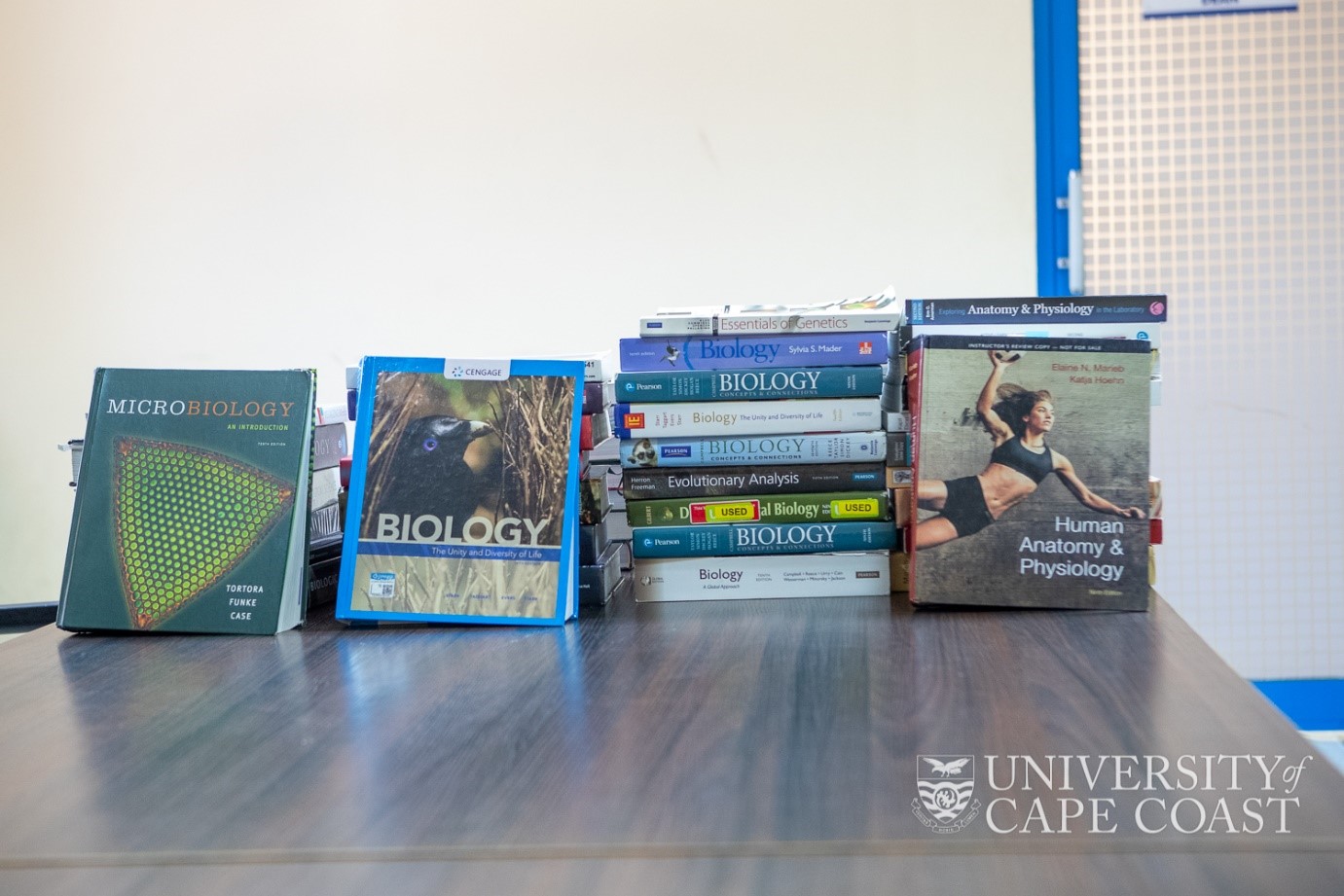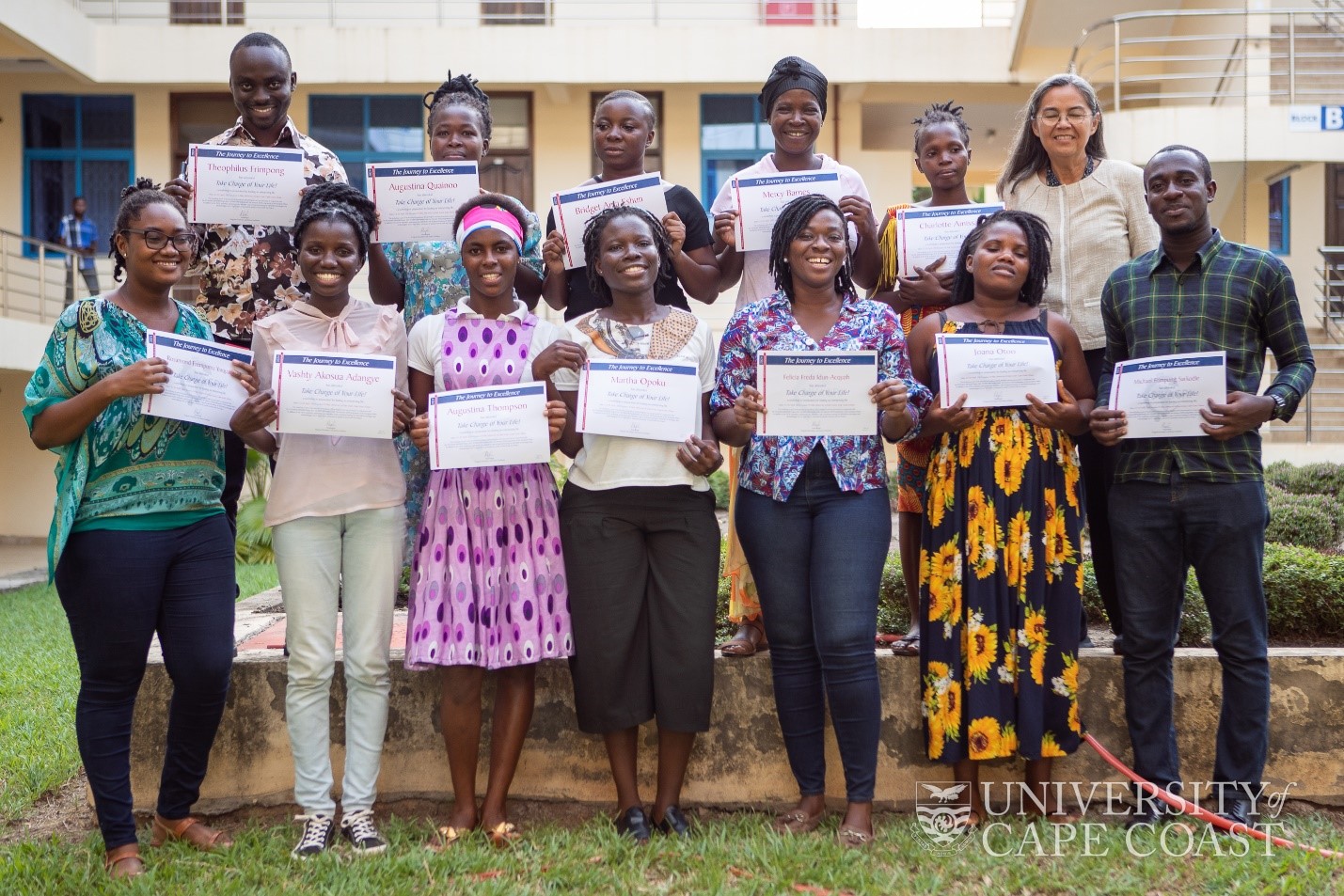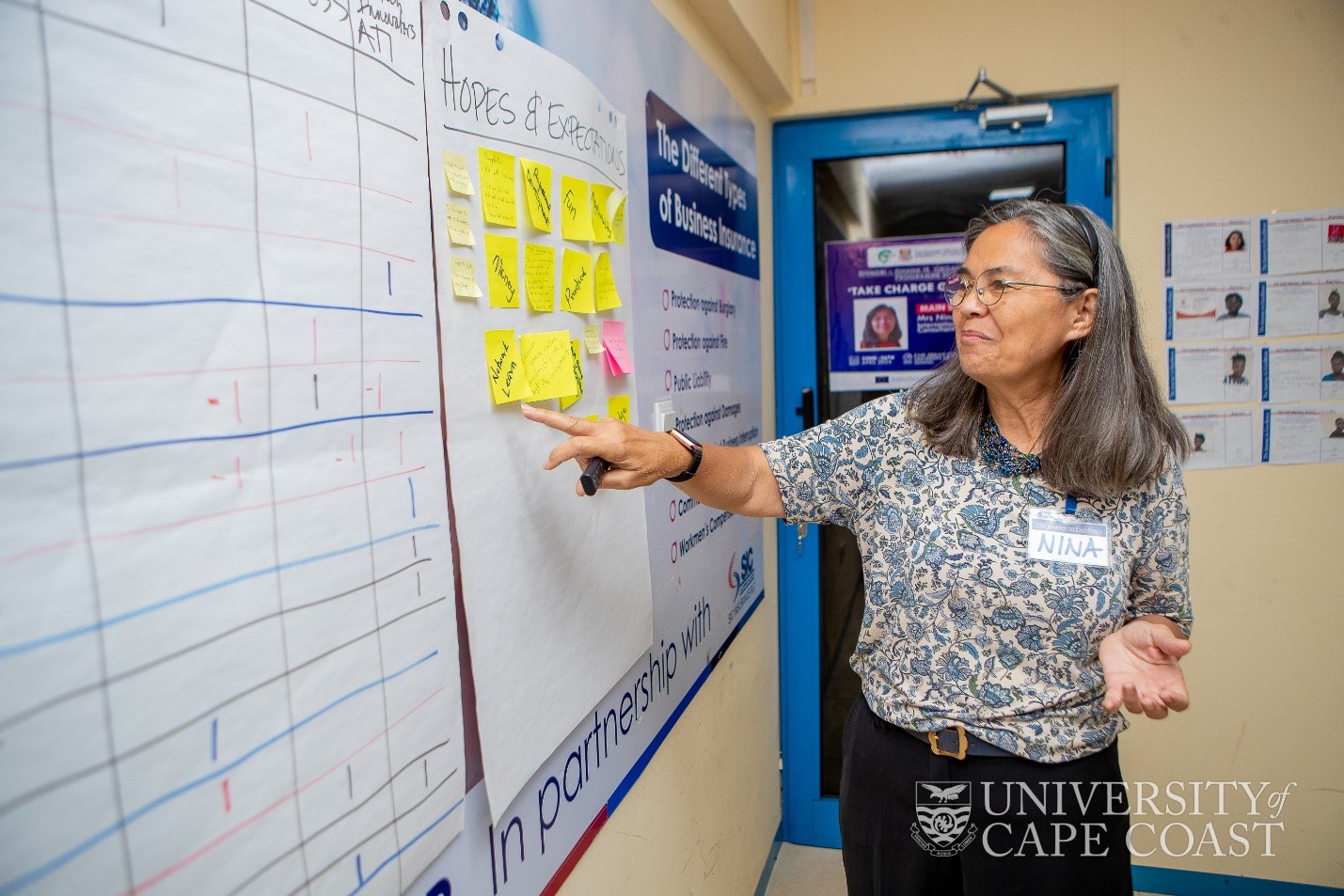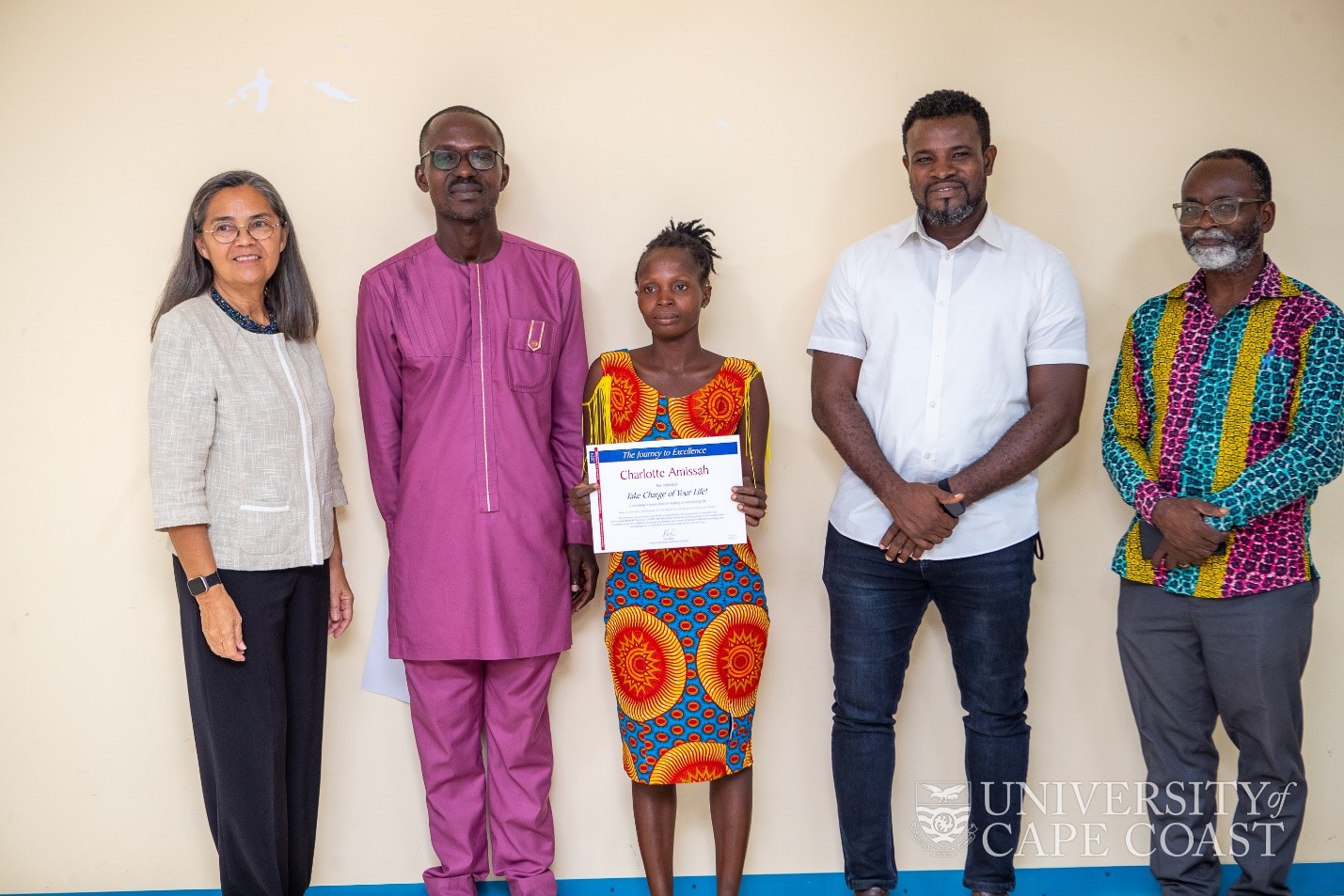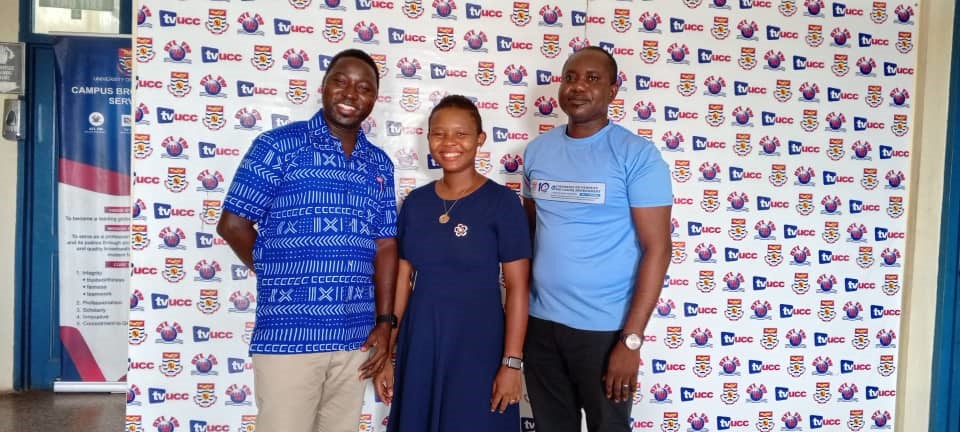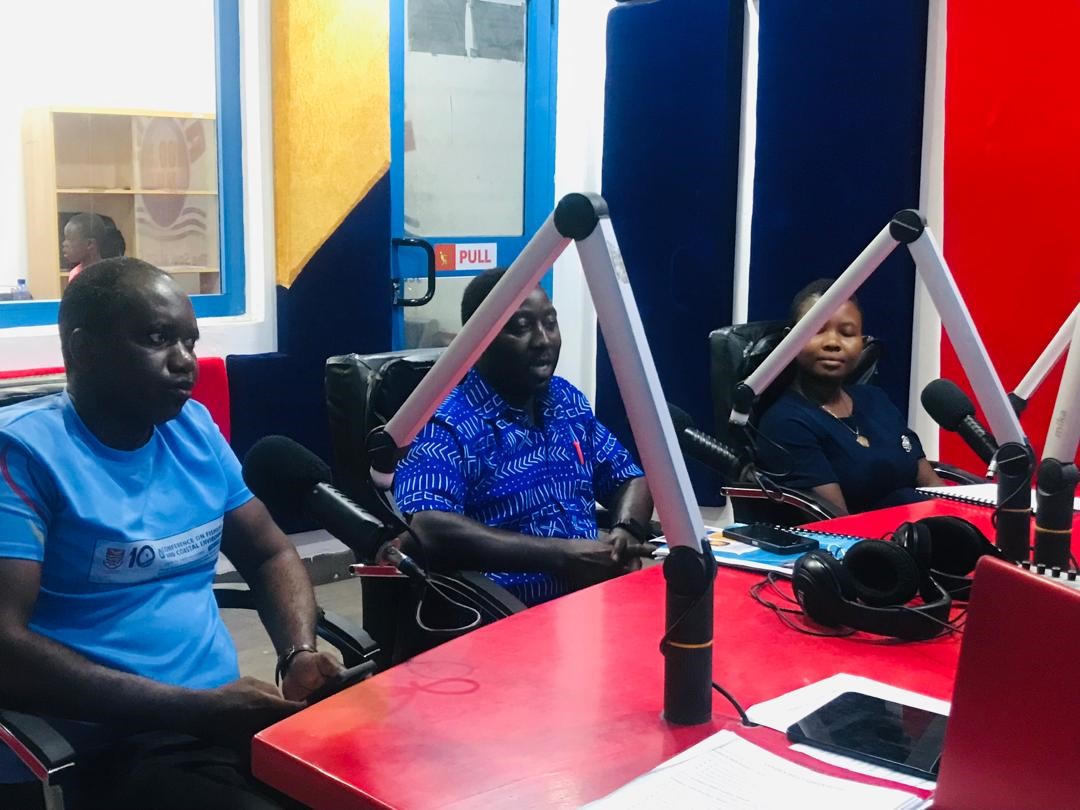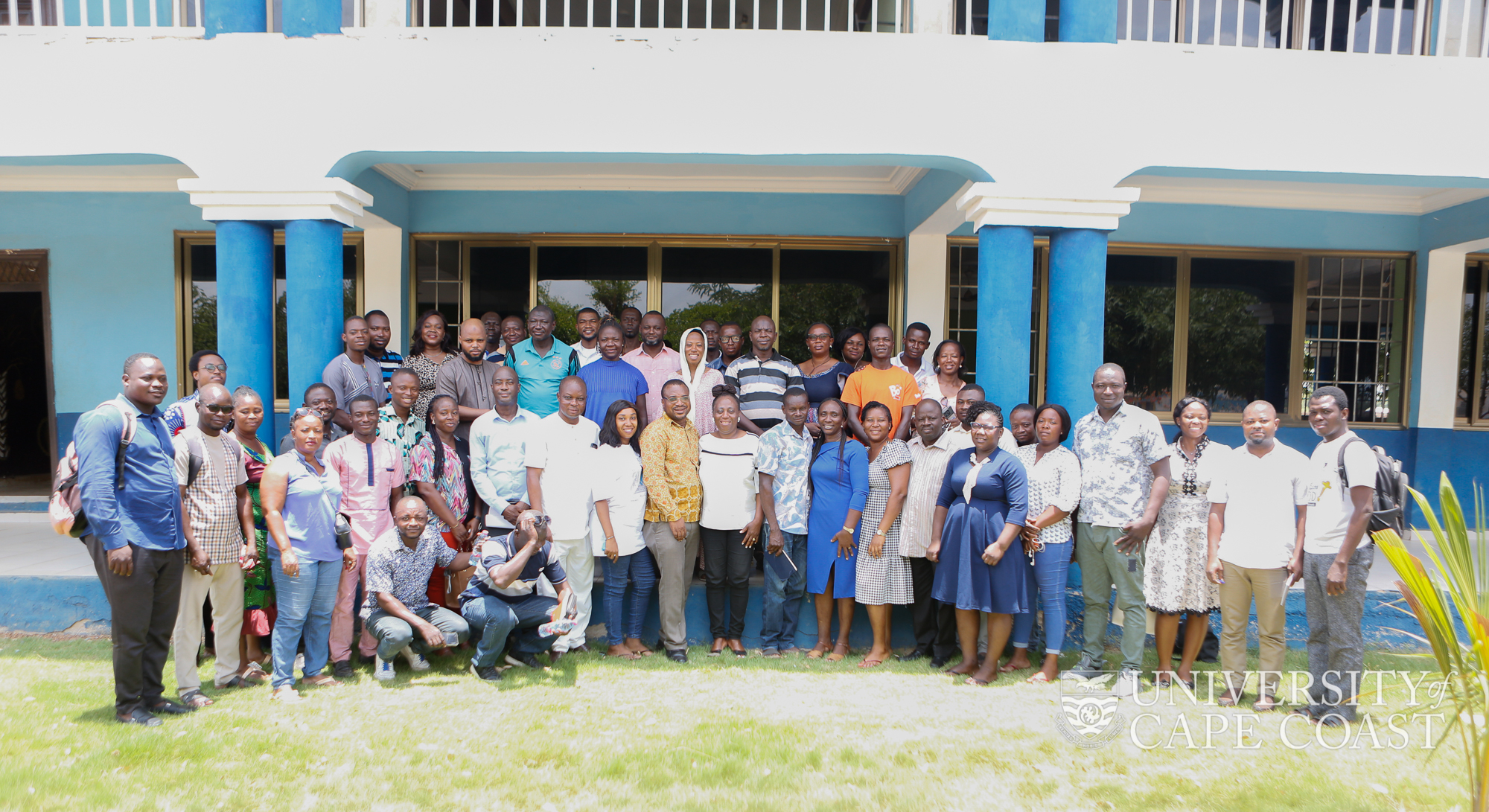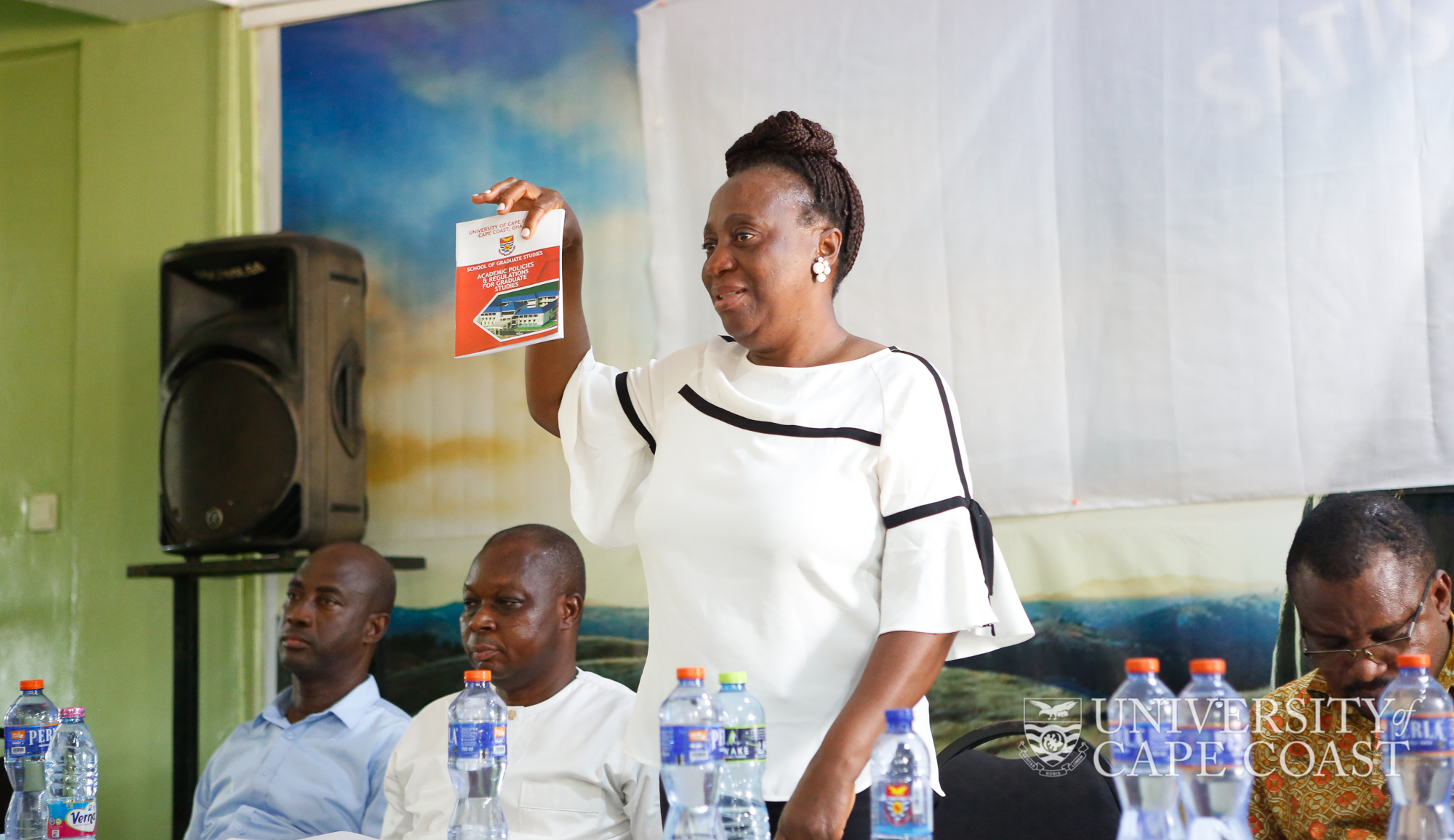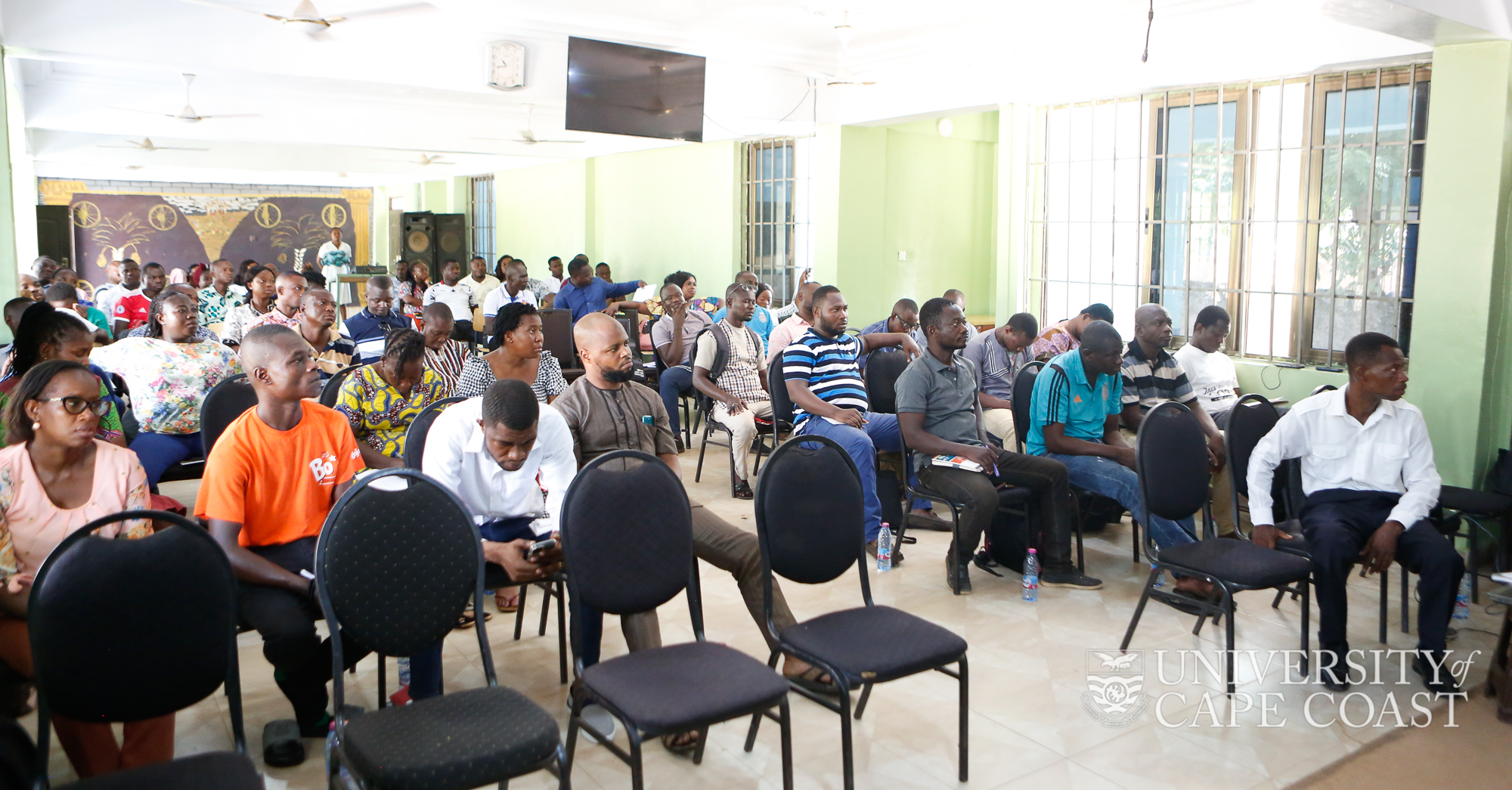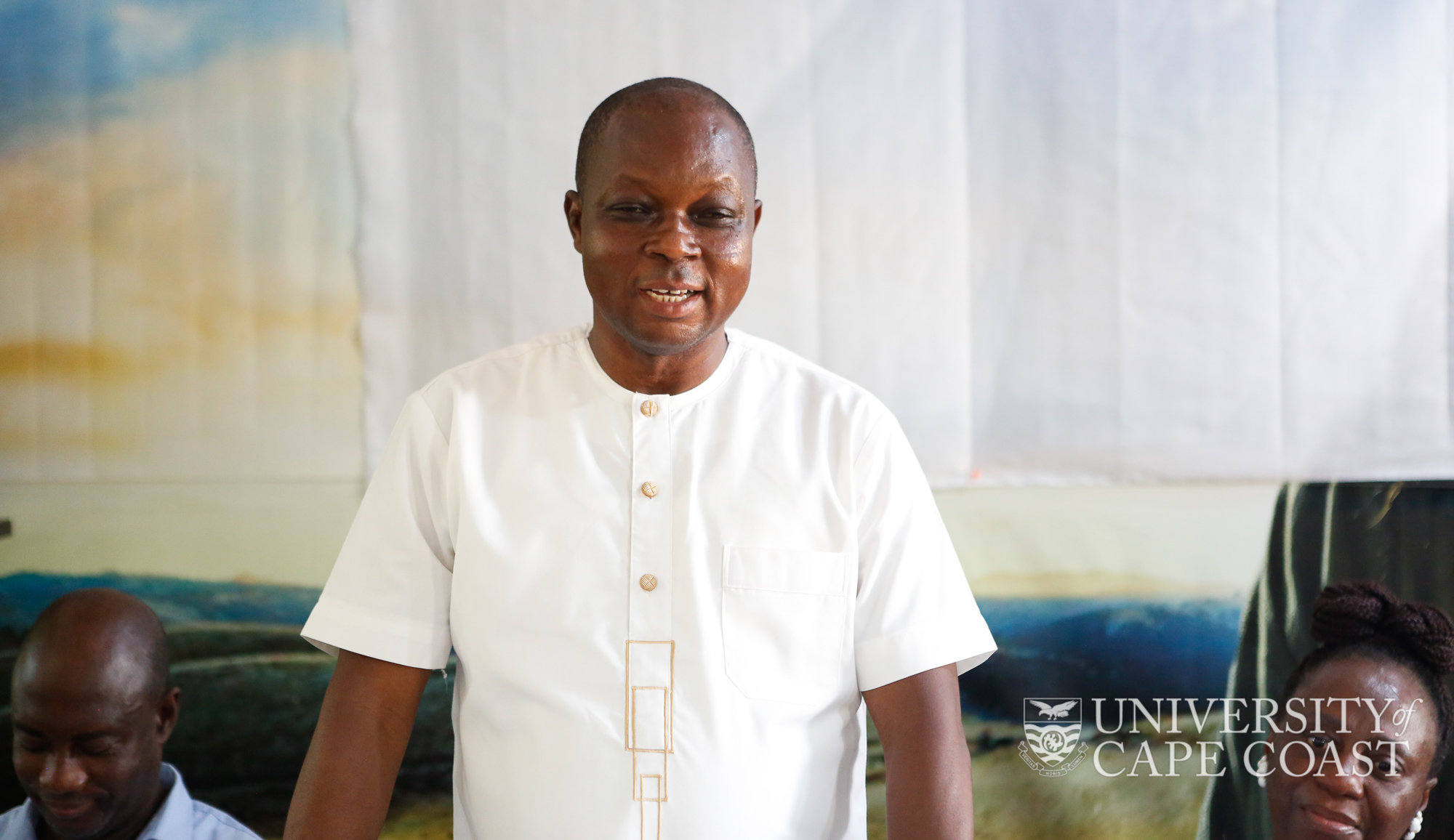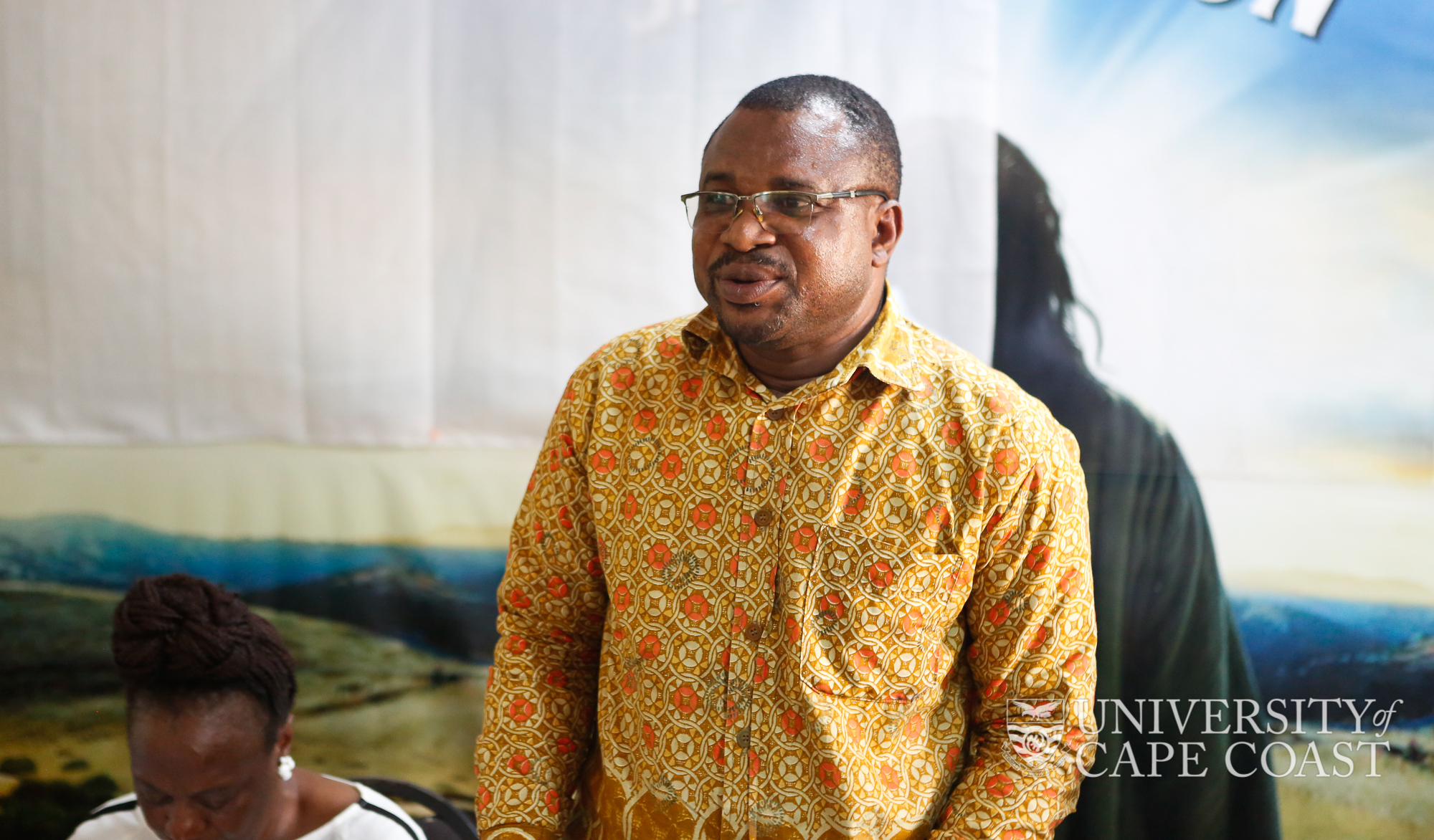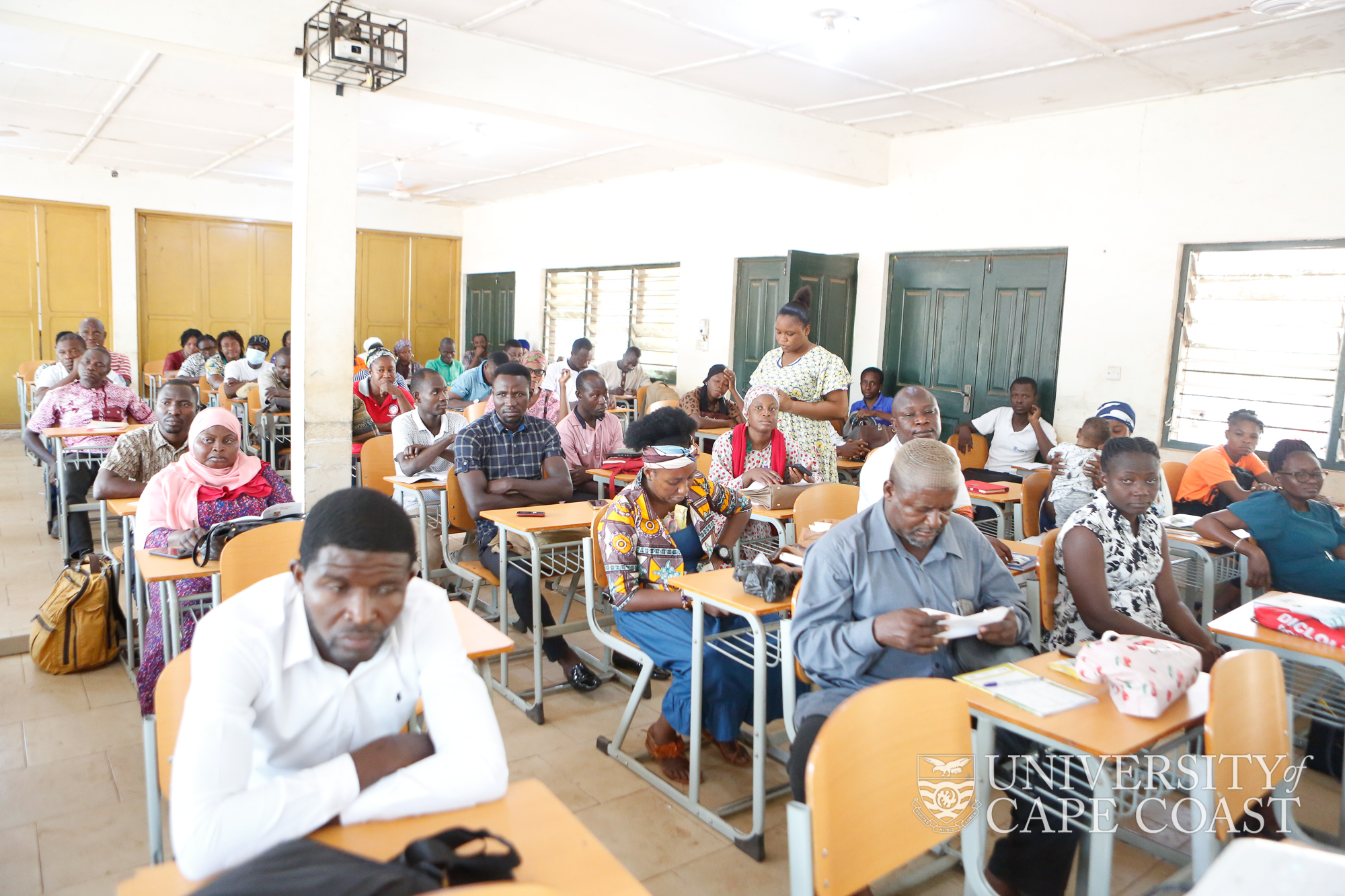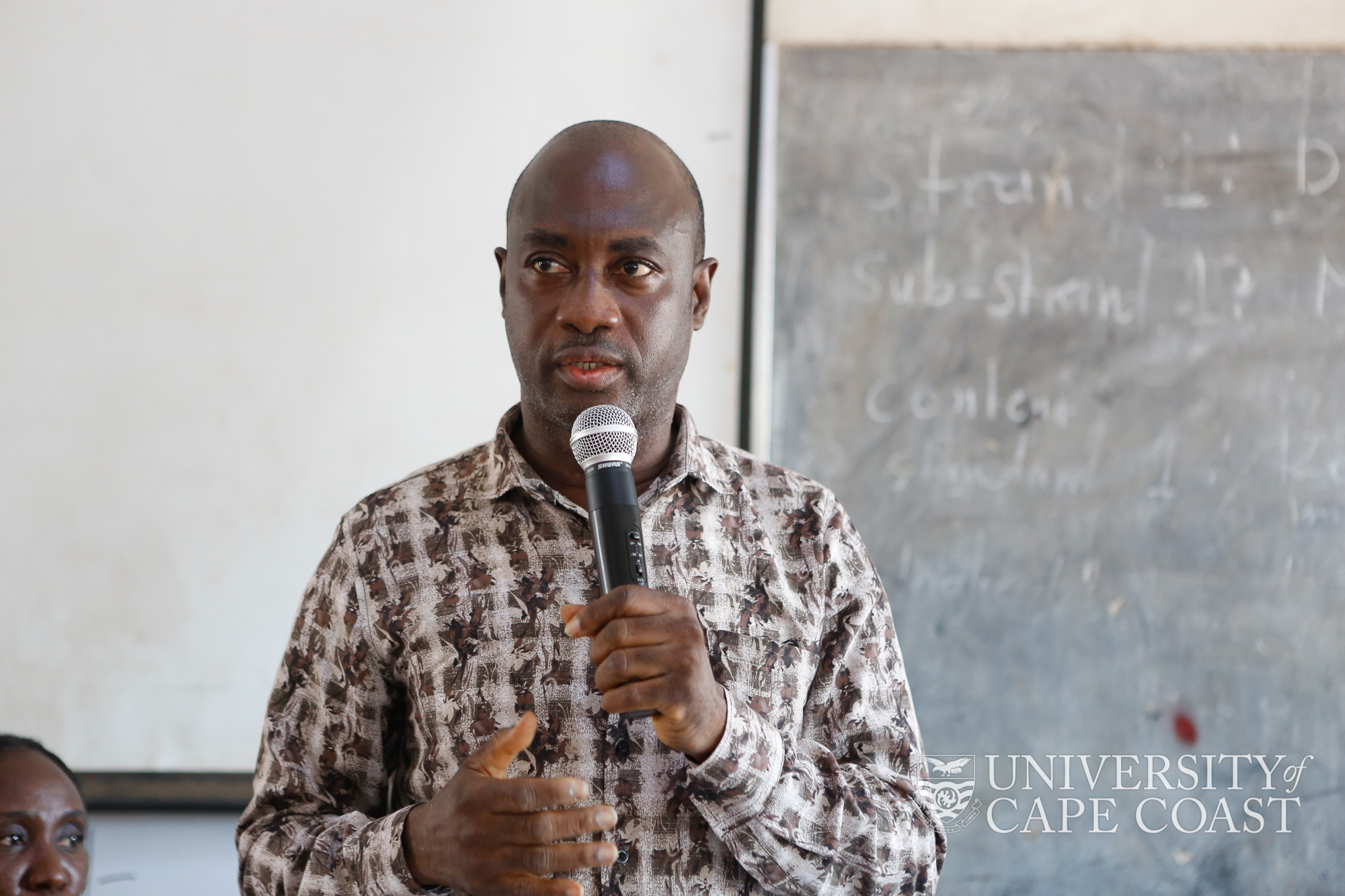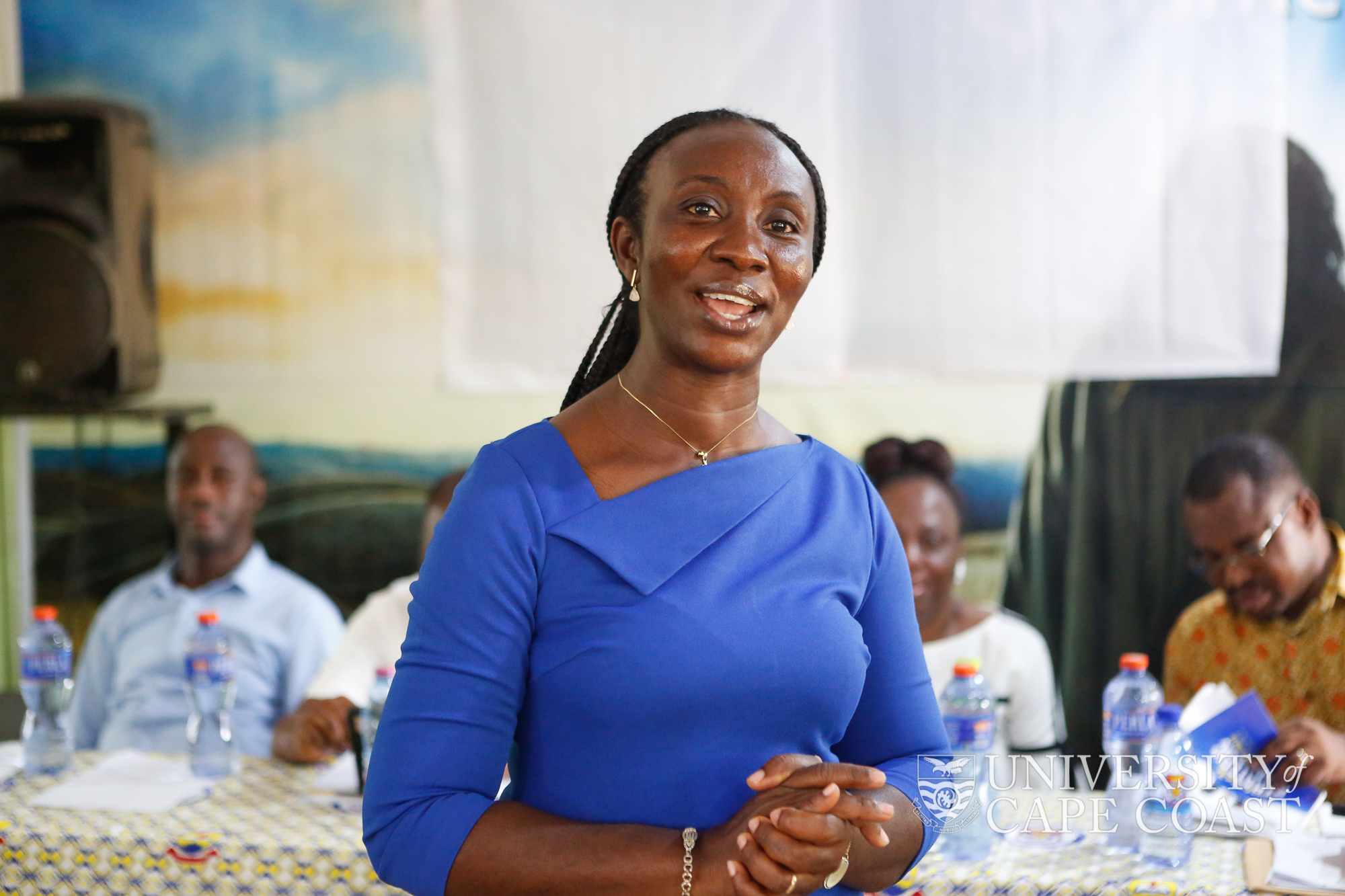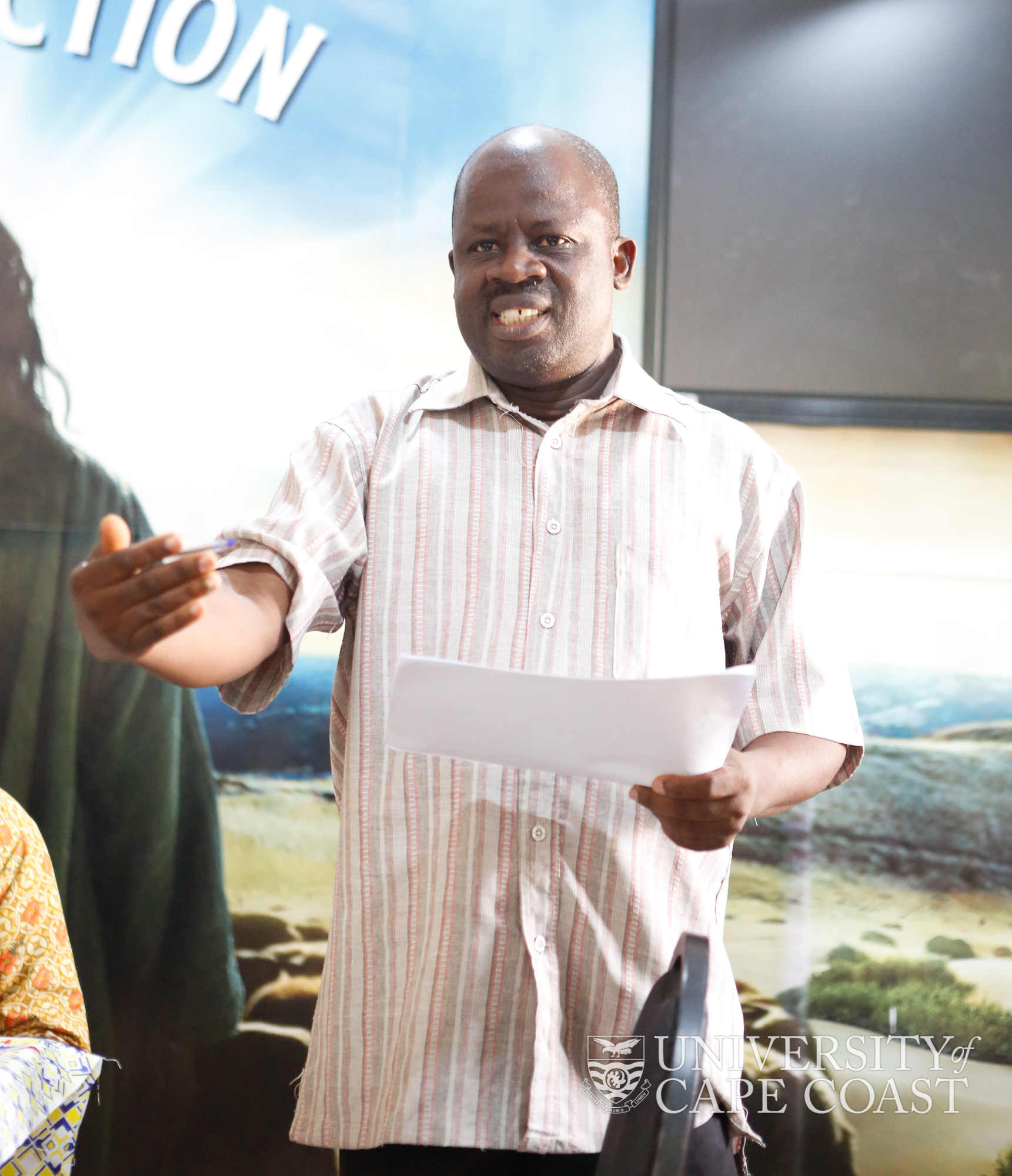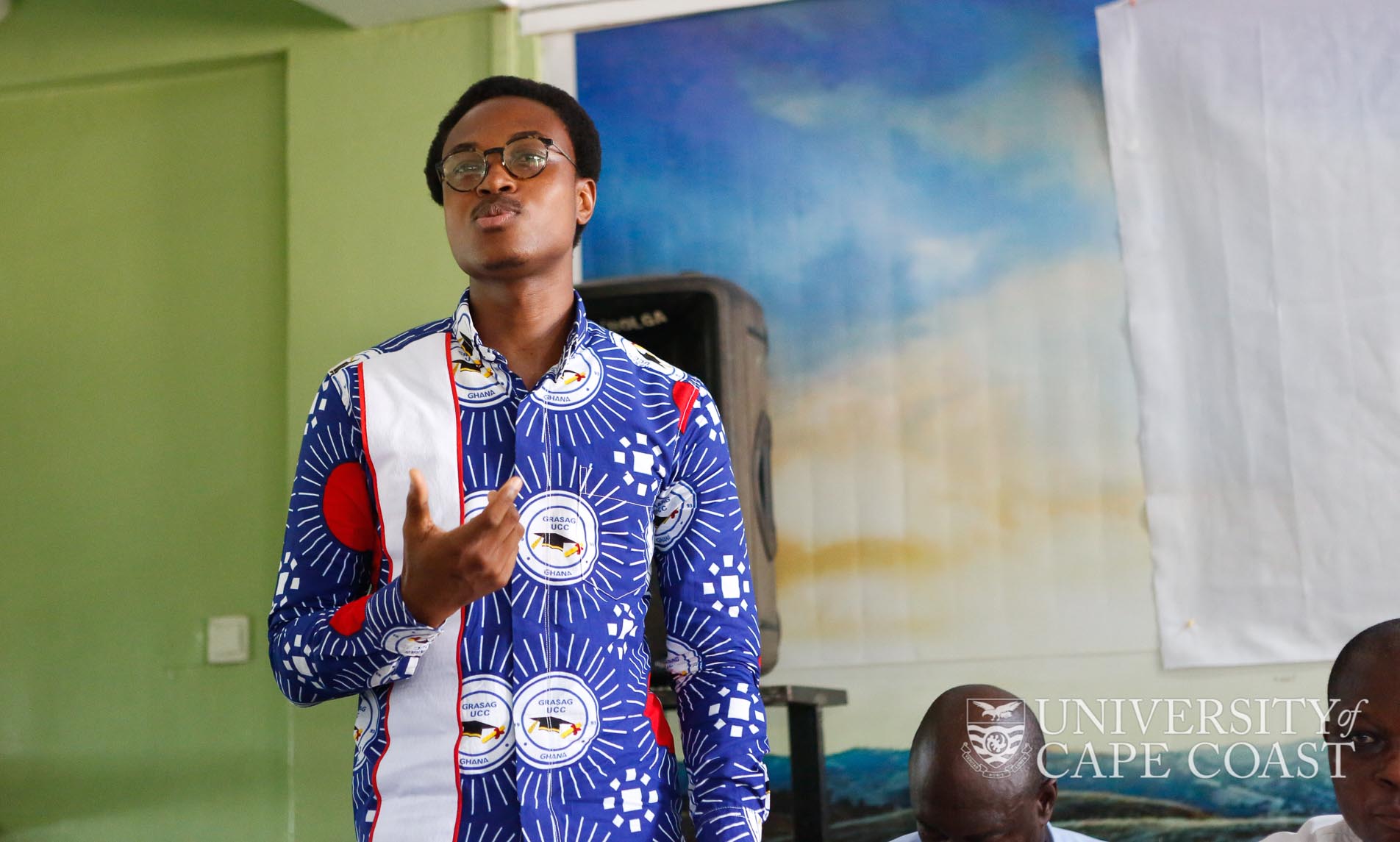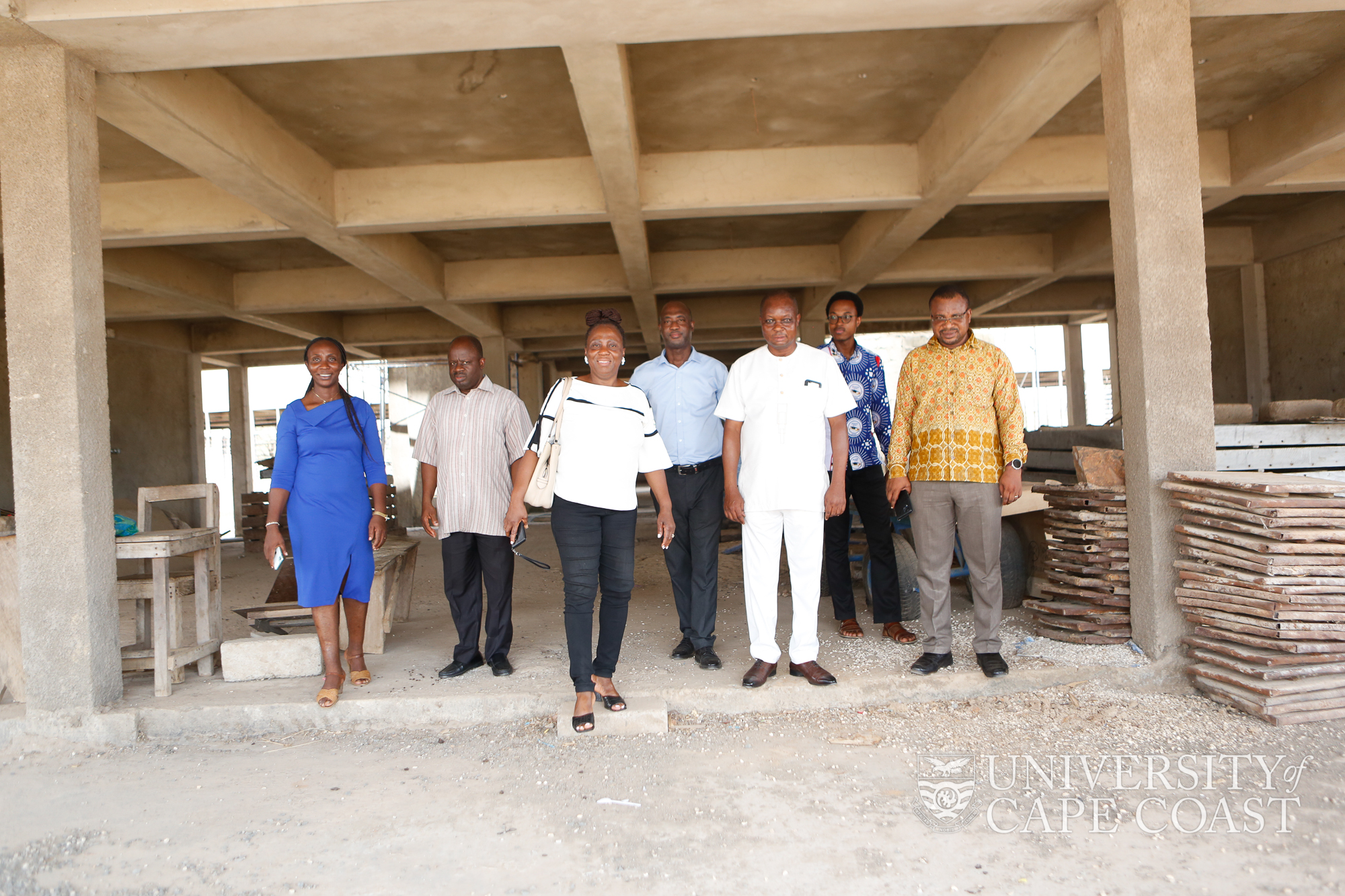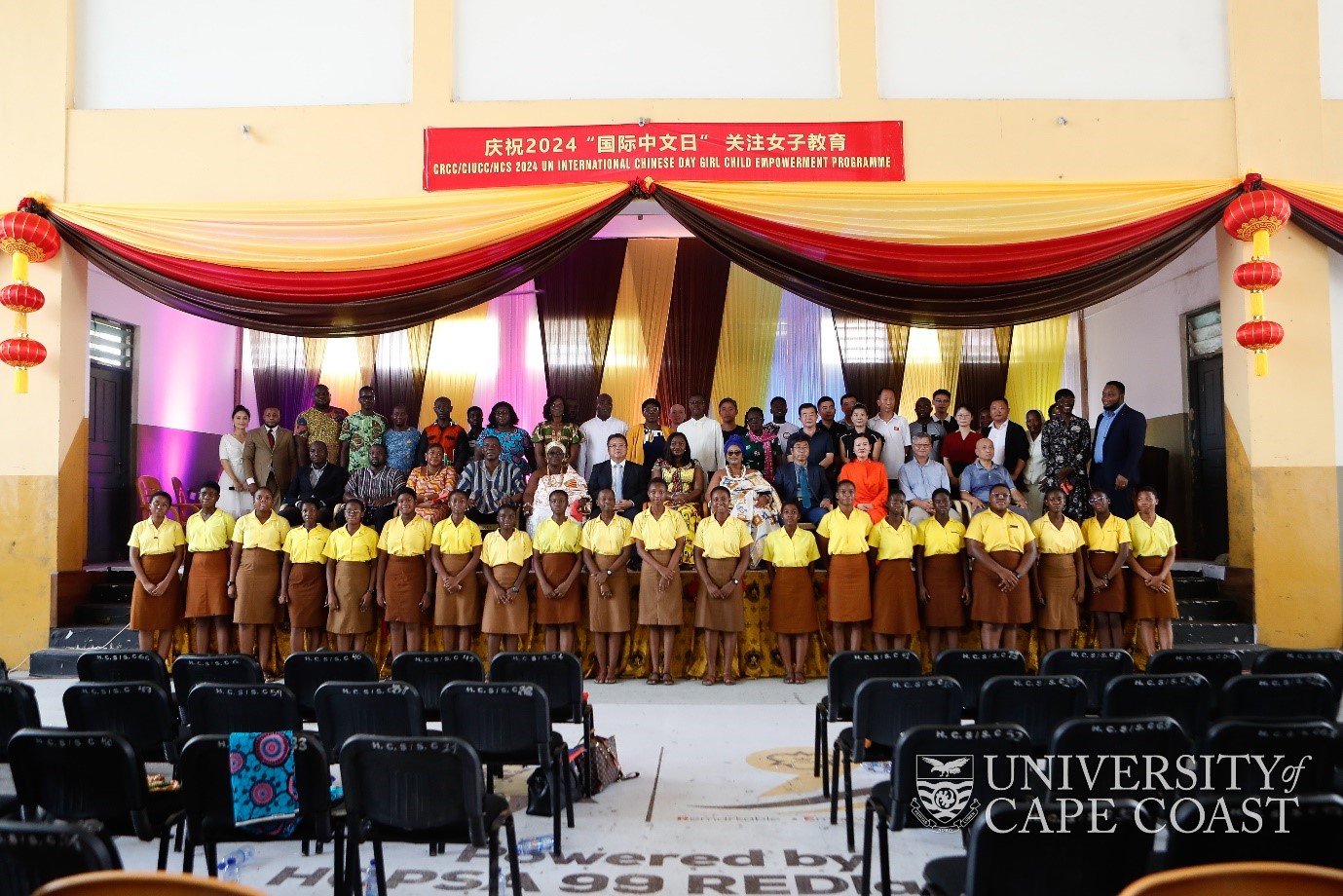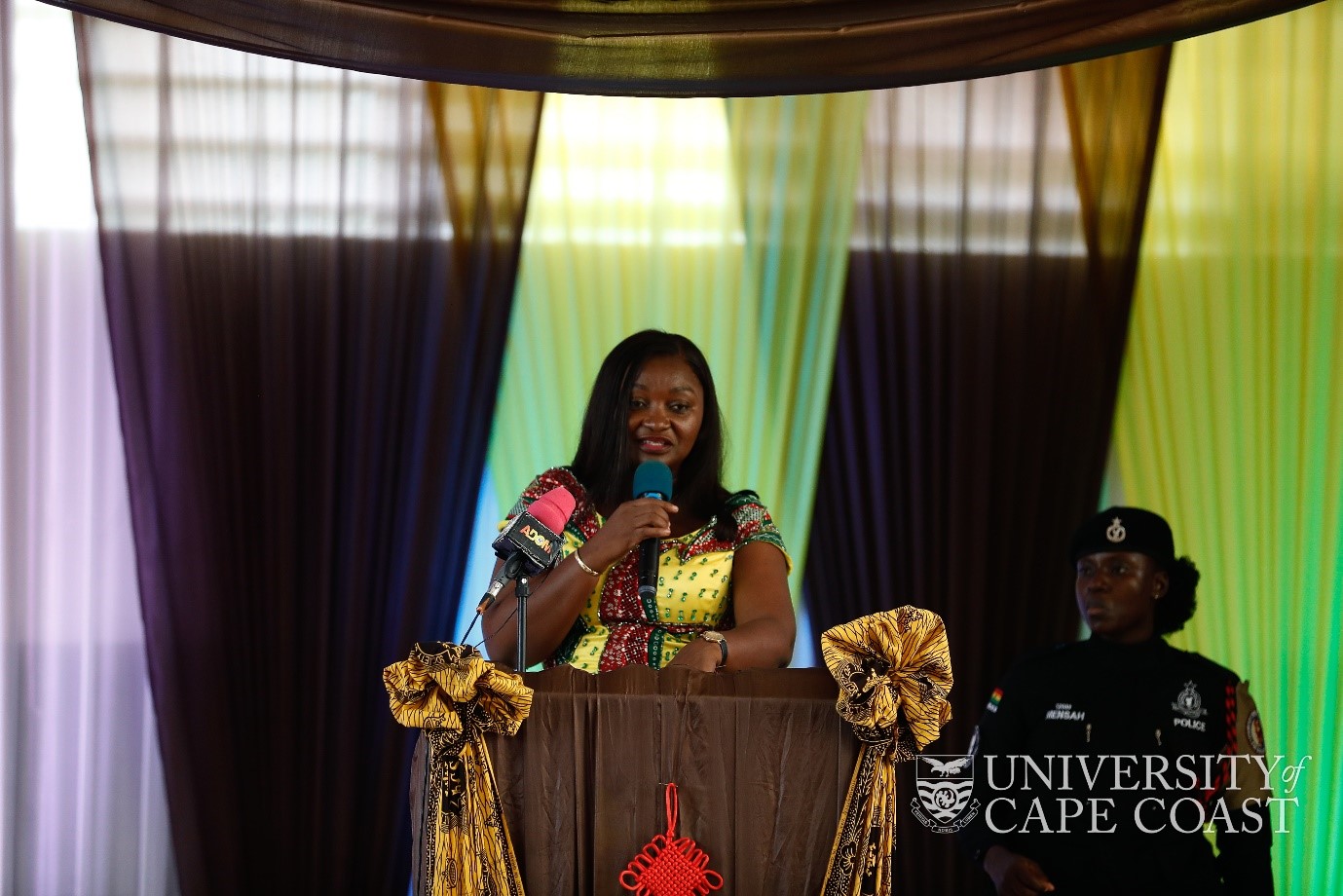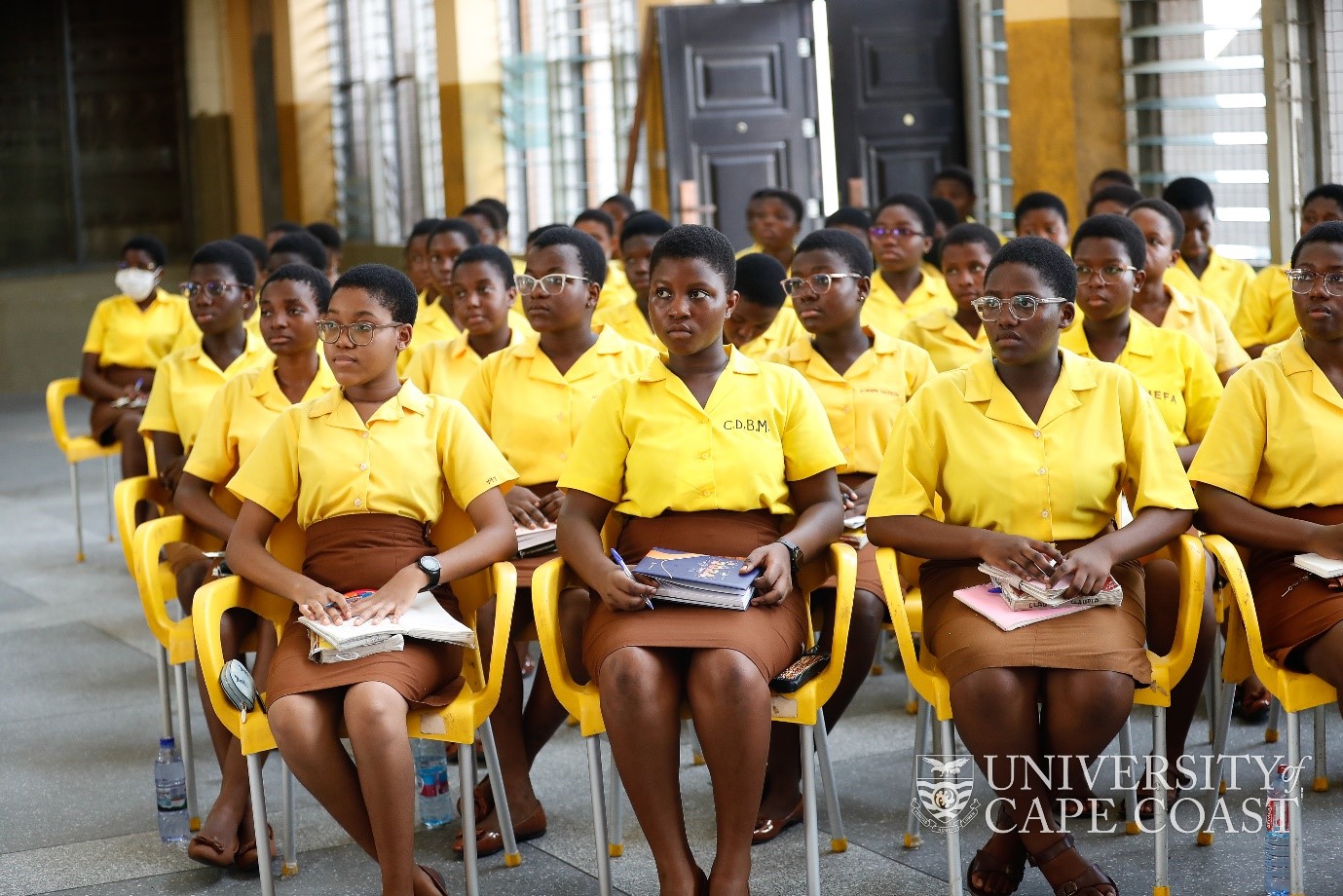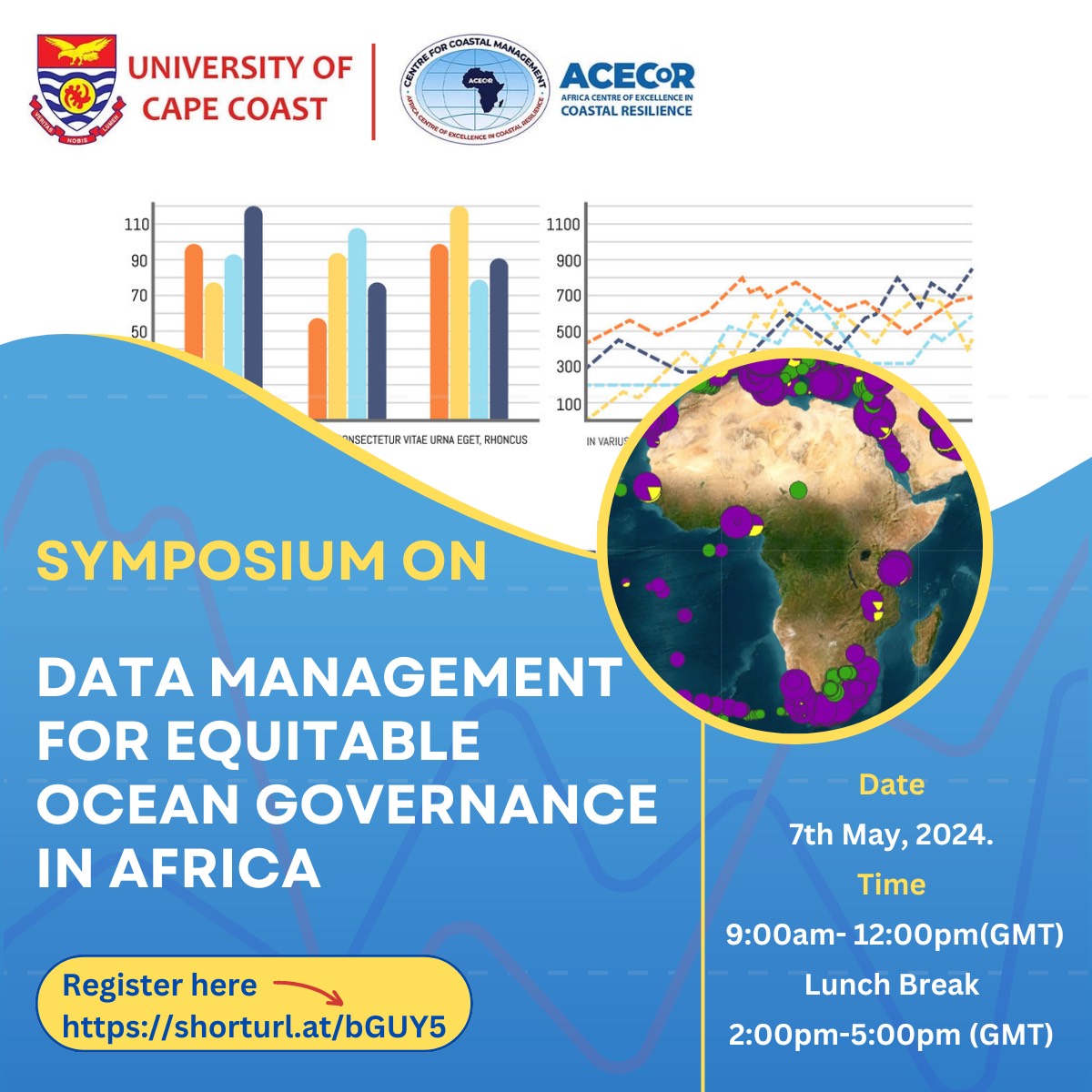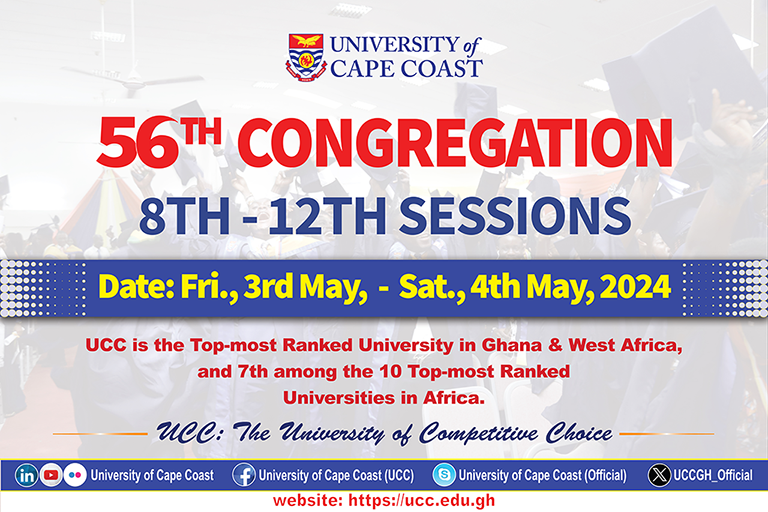The Vice-Chancellor of the University of Cape Coast (UCC), Prof. Johnson Nyarko Boampong, has advised university graduates against joining the Graduates Unemployed Association because opportunities abound to make them self-reliant enough to employ others.
He, therefore, told them to use the knowledge and skills they had acquired throughout their studies at the university to start new businesses.
Prof. Boampong made these remarks during the 8th to 10th sessions of the 56th Congregation of UCC dedicated to graduands of the College of Distance Education (CoDE). A total of 10,000 graduands who studied through the distance education mode and completed in the 2022/2023 academic year were conferred with degrees.
Continuing, he announced that the CoDE was in the process of seeking accreditation to run both regular and distance programmes at the Dominase and Accra Study Centres for the 2024/25 academic year, while the Agona Nyakrom Study Centre would be used to run nursing programmes.
L-R: Chairman of UCC Governing Council, Rev. Prof. Harold Amonoo-Kuofi; Vice-Chancellor, Prof. Johnson Nyarko Boampong and Pro Vice-Chancellor, Prof. (Mrs.) Rosemond Boohene
He expressed regret at the directive of the Ghana Tertiary Education Commission (GTECH) to move CoDE learning centres from Senior High Schools to tertiary institutions, saying it had become difficult for the College to get tertiary institutions to host its students.
“The College is saddled with looking for tertiary institutions nationwide to house the distance learners. Most tertiary institutions are unwilling to accept our students on their campuses," he said.
He told the graduands that the University had empowered them with the appropriate knowledge, character formation, integrity and practical skills necessary for the betterment of society.
Prof. Boampong further noted that various initiatives had been taken to improve upon student and lecturer experience.
The Chairman of the UCC Governing Council, Rev. Prof. Harold Amonoo- Kuofi, reminded the graduands that they had acquired the requisite practical and theoretical knowledge to build on their capacities and, therefore, urged them to use the knowledge gained to impact positively at their respective organisations.
Miss. Eyra Arnong
Miss. Eyra Arnong, with a CGPA of 3.9104, who pursued a Bachelor of Education (Educational Psychology) at Ada SHS Study Centre, was named the valedictorian.
For her prize, she was offered a scholarship (covering tuition fees) to pursue a Master's programme with CoDE-UCC.
She thanked the College for nurturing them academically and promised to be good ambassadors of UCC wherever they found themselves.
Source: Documentation and Information Section-UCC


